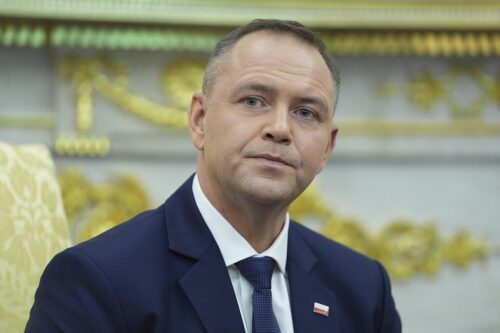
The Washington Post: Putin and Trump compete for influence in the South Caucasus and Central Asia
Flights by Russian military aircraft through NATO and EU airspace — prompting a senior Brussels diplomat to accuse Moscow of “playing with fire” — have once again raised fears of escalating tensions beyond Ukraine, including in Kazakhstan and Armenia, The Washington Post writes.
According to the publication, while much of the world’s attention has been focused on the Baltic states, Moscow has been waging an information war in its own backyard — across Central Asia and the South Caucasus.
The Washington Post notes that Moldova remains Moscow’s main “laboratory,” where, according to President Maia Sandu, hundreds of millions of euros have been spent on political interference. Now, similar warning signs are emerging further east — in Kazakhstan and Armenia. Both countries lie within Russia’s traditional sphere of influence. Both are drifting away, and both now rank high on the Kremlin’s list of concerns.
A classified 2024 report presented by Russia’s Prime Minister Mikhail Mishustin to senior Russian officials warned that Moscow is losing ground in Central Asia and the Caucasus. At the same time, these regions have become increasingly important to U.S. interests — both geopolitically and economically.
The article highlights that Central Asia and the South Caucasus together form the “Middle Corridor,” a trade route linking Asia and Europe while bypassing Russia and Iran. In recent months, Moscow has stepped up efforts to destabilize the region.
“Washington can act in Armenia. Visible U.S. investments in Armenia’s economy, infrastructure, and promising artificial intelligence sector will yield real dividends in stability ahead of next year’s elections. The U.S. should also deepen its ties with Azerbaijan,” the newspaper writes.
As noted, since the 2020 Nagorno-Karabakh war, Russia’s influence over Armenia and Azerbaijan has weakened as both nations have tilted toward the West — a shift that culminated in 2025 with a peace agreement brokered at the White House by President Donald Trump. For Moscow, disrupting this process would restore leverage over the “Middle Corridor,” especially as Georgia once again drifts toward Russia.
The war in Ukraine has pushed much of the post-Soviet space out of Moscow’s orbit — but, as the publication warns, that vacuum may not last long.


